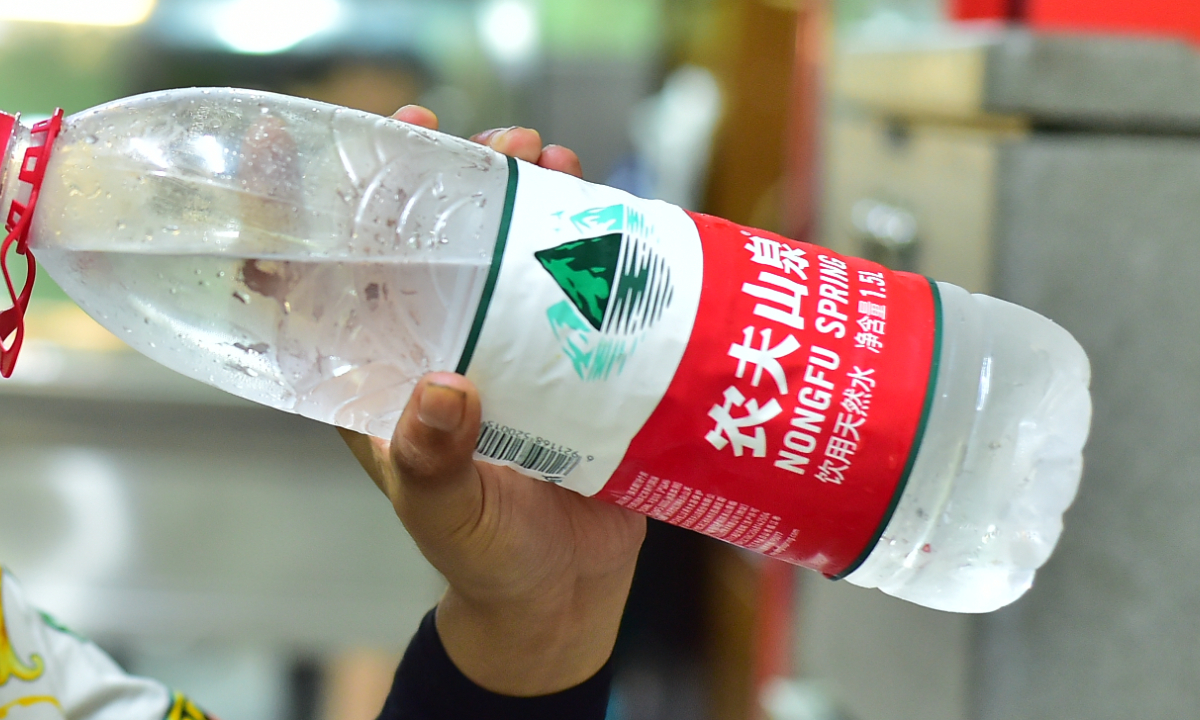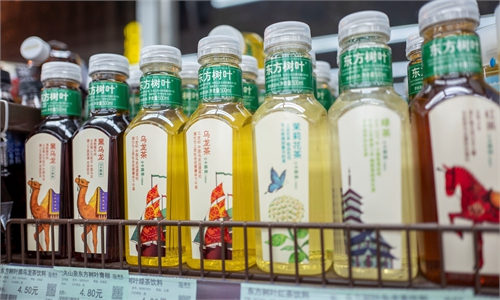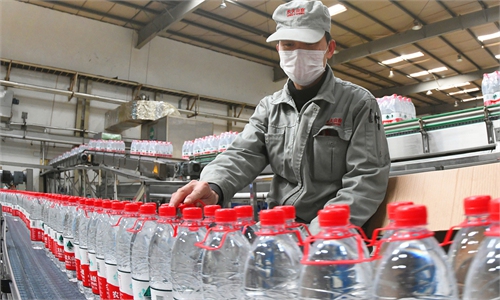HK consumer watchdog apologizes for misleading report on bromate found in Nongfu Spring bottled water

Bottled natural drinking water of Nongfu Spring Photo: IC
The Consumer Council of Hong Kong made an apology on Thursday for the misunderstanding its report on the level of bromate found in the Nongfu Spring bottled water product had caused, and reevaluated the water product as five-stars – the highest level, and assured the public the safety of the Nongfu bottled water for drinking.
On Monday, the council announced that it had carried out tests on 30 brands of bottled water and the results showed that three micrograms of bromate per liter were detected in samples of Nongfu Spring and Ganten, both from the Chinese mainland. The figure reaches the maximum limit for ozonated natural mineral water and fountain water set by the EU but far less than the 10-microgram standard of drinking water set in the US, Japan, the UK or the World Health Organization.
Bromate is a byproduct of water disinfection that can lead to side effects such as nausea, abdominal pain, vomiting and diarrhea when it is overconsumed. In severe cases, it may also affect the kidneys and nervous system, the council said in the report.
The report has raised safety concerns in the market. As a result, shares of the drinks giant plummeted greatly and its total market value shrank HK$ 28.6 billion ($3.66 billion) from Monday to Tuesday.
On Tuesday, the Nongfu Spring released a statement attached with a lawyer’s letter and pointed out three errors in the consumer watchdog report – applying the wrong standard, misjudging the standard, and being clearly subjective and misleading. It also demanded the Consumer Council to immediately clarify its report and make an apology to the company and its consumers for the negative effect.
The company argued that the EU safety standard for “drinking water” rather than that for “natural mineral water” should be applied when evaluating Nongfu Spring water. According to the EU safety standards, the safe level of bromate should be less than 10 micrograms per liter, the same standards used in the Chinese mainland, Hong Kong, the US, Japan and the WHO. Nongfu Spring’s natural water products only measured at three micrograms per liter, which fully complies with the drinking water safety standards of all the aforementioned countries and regions, and should be considered as high-quality products.
The water company said that the Hong Kong watchdog disregarded the differences in productions and drew a conclusion that was extremely unscientific and unscrupulous.
The watchdog’s report has caused panic among consumers in Hong Kong and the mainland, resulting in huge losses to Nongfu Spring, said the statement.
According to industry insiders, the Consumer Council of Hong Kong cited the statistics from the New York State Department of Health in the US, the original text of which states that doses thousands of times higher than the American standard would be required to cause adverse effects. However, the council deliberately ignored this point, quoting out of context, discussing toxicity without considering dosage, and causing unnecessary panic.
In response, the Hong Kong’s consumer watchdog said on Thursday that it had launched “in-depth research and follow up” after receiving a legal letter from Nongfu Spring. It understood that the company’s bottled water was not “natural mineral water,” or “purified drinking water,” but was “natural drinking water” after meeting the company’s representatives on Wednesday, and it has reclassified the sample in an independent category called “natural drinking water.”
The council also increased the rating for Nongfu Spring bottled water from a four-and-a-half stars to five stars, and reiterated that all 30 bottled water samples tested had satisfied chemical safety standards, with no harmful substances found to be over limit.
Nongfu Spring’s response has won praises from a slew of mainland netizens who pointed out that the mainland company had taught a good lesson to the Hong Kong watchdog who adopted double standards when assessing Chinese mainland and foreign bands of bottled water products.
Some netizens said that the bottled water giant should take legal actions to fight back the Hong Kong consumer watchdog’s misleading report.
Other netizens said the incident also served as free advertisement for the water company.
Global Times


